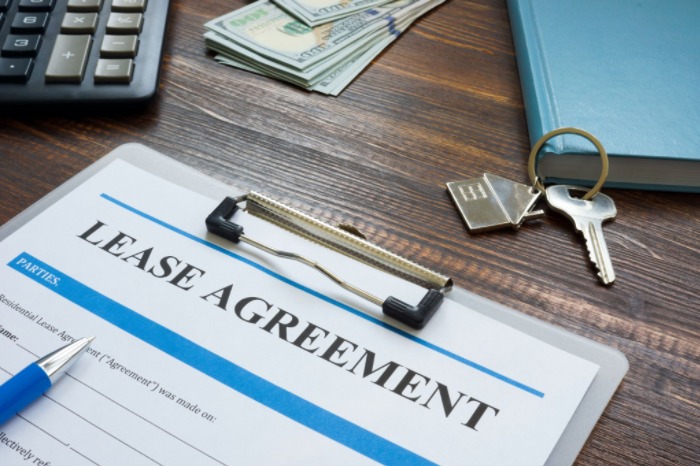In the world of rental arbitrage, where you lease a property and then sublease it as a short-term rental, the lease agreement is your cornerstone. It’s the legal foundation that not only protects your interests but also sets the tone for your relationship with the property owner. This guide is designed to walk you through the process of crafting a lease agreement that is not only comprehensive and compliant with legal standards but also tailored to the unique needs of rental arbitrage.
Understanding the Importance of a Solid Lease Agreement
First and foremost, let’s understand why a specialised lease agreement is vital for rental arbitrage. Unlike traditional leasing, rental arbitrage involves an additional layer – you’re not just a tenant; you’re also a host. This dual role brings unique challenges and responsibilities, necessitating a lease agreement that addresses issues like subletting permissions, maintenance responsibilities, and liability coverage.

Key Components of a Lease Agreement for Rental Arbitrage
A well-crafted lease agreement for rental arbitrage should cover several key areas:
Explicit Permission for Subletting:
This is the heart of rental arbitrage. Your lease must explicitly allow you to sublease the property. Without this clause, you could be in violation of your lease terms, risking eviction and legal repercussions.
Duration and Renewal Terms:
The lease should clearly state the duration of the agreement and the terms for renewal. Given the nature of rental arbitrage, longer lease terms are generally more favourable, providing stability for your business.
Rent and Payment Terms:
Clearly outline the rent amount, due dates, and payment methods. Include details about security deposits, late fees, and any other financial obligations.
Maintenance and Repairs:
Define who is responsible for maintenance and repairs. In rental arbitrage, the wear and tear on a property can be higher than in traditional leases, so it’s important to have clear terms regarding responsibility for upkeep.
Insurance Requirements:
Address the insurance obligations for both parties. As a host engaging in commercial activity, you may need additional insurance coverage beyond standard renters’ insurance.
Use of Property:
Specify the allowed use of the property, ensuring it aligns with your intended use for short-term rentals. This section should comply with local laws and regulations governing short-term rentals.
Termination Clauses:
Define the conditions under which the lease can be terminated by either party. This includes notice periods and any penalties for early termination.
Legal Compliance:
Ensure the lease complies with local, state, and federal laws, including those specific to short-term rentals.
In rental arbitrage, staying on the right side of the law is non-negotiable. This means your lease agreement must adhere to all relevant legal and regulatory requirements. Research local laws regarding short-term rentals, including zoning laws, occupancy limits, and licensing requirements. The lease should reflect these legal stipulations to ensure both you and the property owner are protected.
Customising the Lease for Your Business Model
Every rental arbitrage business is unique, and your lease should reflect your specific business model and strategy. Are you targeting business travellers, tourists, or another niche? Your lease might include provisions related to these specific guest demographics, such as noise restrictions or limitations on guest turnover.
Incorporating Flexibility and Clarity
Flexibility in a lease agreement is key. The ability to adapt to changing market conditions, regulatory landscapes, and personal business goals is essential for the longevity of your rental arbitrage venture. For instance, including clauses that allow for adjustments in rental prices based on market trends can be beneficial.
However, clarity should not be sacrificed for flexibility. Every term and condition in the lease should be clearly defined to avoid misunderstandings. For example, if you are responsible for minor repairs, specify what constitutes a ‘minor repair’ in the agreement.
Addressing Subtenant Management
Given that you’ll be subletting the property, it’s important to address how you’ll manage your subtenants. This includes setting guidelines for guest behaviour, stay duration limits, and your process for handling guest-related issues. It’s also wise to discuss how you plan to ensure the property is maintained in good condition and outline any house rules that guests will need to follow.
Ensuring Legal and Financial Protections
To protect yourself legally and financially, include clauses that cover liability issues and potential property damage. This can involve requiring a certain level of insurance coverage and setting aside a contingency fund for unexpected expenses or legal issues.
Detailing Conflict Resolution Procedures
It’s crucial to outline procedures for resolving disputes or issues that may arise during the lease term. Whether it’s a disagreement over property maintenance or changes in local regulations affecting your ability to sublet, having a pre-agreed method for handling conflicts can prevent costly legal battles and strained relationships.
Regular Reviews and Updates
The lease agreement should not be a static document. Regular reviews and updates are necessary to ensure it stays relevant and compliant with changing laws and market conditions. Set a schedule for reviewing and renegotiating the lease terms, such as annually or biennially.
Practical Tips for Negotiation
When negotiating the lease terms with the property owner, clear communication and understanding of each other’s interests are vital. Highlight the benefits of rental arbitrage for the property owner, such as consistent rent payments and well-maintained properties. Be prepared to compromise and find a middle ground that satisfies both parties.

Case Studies: Learning from Successful Agreements
Analysing successful lease agreements in rental arbitrage can provide valuable insights. Look for case studies or seek advice from experienced individuals in the field. Learning from their successes and mistakes can guide you in forming your own agreement.
Conclusion: Building a Strong Foundation
In conclusion, a well-crafted lease agreement is the bedrock of a successful rental arbitrage business. It should clearly outline the terms and conditions of your arrangement, provide legal and financial protections, and be adaptable to changing circumstances. By focusing on mutual benefits, maintaining flexibility, and ensuring clarity and compliance, you can establish a solid foundation for your rental arbitrage venture and foster a positive, profitable relationship with the property owner.












